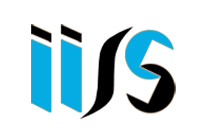Blogging is the modern way of self-expressionism. It helps in community building, knowledge-sharing and opinion evolution. Blogging can also be a pathway to business models, and today, educational services and franchises also begin with a good education blog. International journal houses have immense opportunities for growing authors and researchers; they provide editorial services and proof- reading facilities for smooth open-access publication so that academicians are able to produce and publish more about important and relevant scientific findings. However, education blog is a great way to express who you are, what you provide and what is your motto in the world of education. Starting an education blog might be useful for researchers, students and academicians as well, to build a known community where people can look up for ideas, questions, conversations and solutions.
Here are 10 things to know for starting a successful education blog-
- Know the Content– for it to be an education blog;the content must specify certain things. You need to know what an education blog is and what it contains. From the name, it is indicative that students and teachers will use it mostly. So a typical education blog may contain lesson plans, tips for doing well in school, ways to finish homework on time, technology solutions, ways to train adults etc. It might also have information about school, college ratings, subjects in specific admissions, universities etc.
- Go Beyond the Usual– The education blog should include but not limit itself to studies. People will look up the blog for solutions, but sometimes, they might as well browse for inspiration, something beyond facts and numbers. Hence your content should include motivational posts, that will help students, authors, and academics to keep up with their daily academic schedule. There can be blogs about how to organize oneself, time management tips, how not to give up, how to succeed after a failure etc.
- Include Relevant Information about the Academic World– To be successful in education blogging, be aware of the current trends in education. If publishing is what people look for in the global academic world today, include information about renowned peer-reviewed international journals that are free or low at cost (in case of open-access journals). If people are looking up for virtual platforms, to conduct classrooms, include blogs about 10 reliable virtual networking platforms that can be the future of education.
- Make Effective Arguments– Every person has an opinion under the sun, but while you write your posts, create critical content which can develop multiple perspectives. Additionally, keep an open end to draw in conversations from your users. Let others post their ideas and opinions over your post, via comments section; write in such a way, that you don’t declare a statement, but put out a question to have answers from others. This will attract traffic to your blog.
- Create Case Studies– A statement without evidence is just an opinion, not education. A high-quality post can provide valuable information to readers. A blogger can make case studies, so readers will know how a theory transforms into practice. Even classroom experiences can be part of outstanding case studies. You can also use references to other works to justify your statements in the post; in that way you can create effective solutions for your readers.
- Use Content Tools– As we have discussed earlier, you need to be aware of the market trends to set up successful blog. Who is your audience, what they are looking for, which topics are trending, which keywords can be most searched on the web; these are things to know before formulating a blog. Some websites and apps can be used to search keywords, others statistically explain the inclination of the audience. Marketers use them to create successful posts to generate traffic, and you must do so too, to make your education blog popular.
- Target Your Audience Carefully– Different platforms have different audience base. You must know yours, which really depends on your objective of creating a blog. As a researcher or educator your target audience will be authors and researchers who want to publish their papers in an international journal. You may want to provide information to them that will help them with research and publication. You Structure and format your education blog such that it appeals to your audience correctly. Browse the web to get some templates that suites the type of audience you are looking at; write materials that are relevant to your target audience.
- Build Traffic through Social Media– Get active on social media with twitter, Facebook etc. where you can create posts about your blog and services. Visit online forums related to education and academics. Post answers and comments there, to attract readers to your blog. Reach out to parents too, who wish to help their children succeed in school or college.
- Use Advertisements in Your Blog Wisely– It is never too bad to generate some income from the efforts you put in. Ads are the most obvious way to monetize your blog. You can use something like Google AdSense to automatically place ads on your blog. AdSense allows you to make a list of what you will and won’t allow on your site, meaning that you can create limits that ensure the ads are PG. However, you may still see things pop up from time to time that you see as questionable.Another drawback to this type of advertising is that you need a lot of traffic before you begin to see much money from AdSense ads. You can use sponsorships and fundraisers if you are against blatant advertising.
- Be Relevant– Relevance means to focus on the audience, niche, objectives, timeliness, and solutions to problems. To be relevant to a specific audience, a blogger must know their interests, problems, and challenges. One must also focus on the niche to better develop and define relevancy. A blogger must also focus on the objectives. If one wants to thrive in the blogosphere, one must have an objective. To be relevant is to provide fresh, trending topics. One must also focus on solving the real issues of the readers. It must be one’s ultimate goal: to offer solutions to the readers’ problems.










